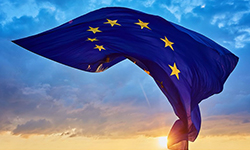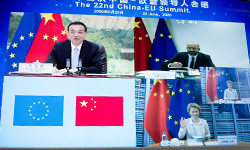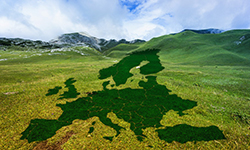BusinessEurope Headlines No. 2020-24
Tripartite Social Summit: EU should focus recovery response on growth, competitiveness and employment

“In order to minimise long-term scarring to the European economy, the EU and its member states need to progressively reopen their economies and put in place a coordinated economic response to support enterprise investment, consumer demand and employment”, said BusinessEurope's Director General, Markus J. Beyrer at the Tripartite Social Summit on 23 June. The topic of this summit was "Contribution of the Social Partners to relaunching Growth and Employment in the Aftermath of COVID-19". Beyrer added that Europe needs a growth strategy including the green and digital transitions but not limited to these two crucial transitions, and improving competitiveness. SMEs in particular need support to recover from the shock of the crisis and become more resilient again. “In the coming years, all efforts should be geared towards ensuring that the funding foreseen in the Next Generation EU recovery instrument is well spent, incentivising necessary structural reforms, and providing prosperity-enhancing investment and job creation”, he stated. On the occasion, the European social partners presented their new autonomous framework agreement on digitalisation. “It is important that the Commission fully respects the autonomy of the social partners”, Beyrer highlighted. Read his full speech.
![]()
![]() Contact: Maxime Cerutti
Contact: Maxime Cerutti
Video message: social partners new agreement on digitalisation
The European social partners presented their new agreement on digitalisation at the Tripartite Social Summit for Growth and Employment. Watch BusinessEurope Director General Markus J. Beyrer explain the agreement's aim and importance. You can also read the report.
Our comment
What trade can do for climate: more than carbon border adjustments
By Leon de Graaf and Jasmin Ploner, Advisers working on Climate and Trade
 The global economy is facing an unprecedented storm due to COVID-19, and the EU has set its sails on a “green” recovery. It presented its European Green Deal as one of the central tools to restore our economy and European business is ready to contribute to its success. Unfortunately, a green recovery is not a key priority in the recovery plans of many other governments around the world. This adds many risks for European companies: a reduced level playing field increases the risks of them moving out of Europe and investing elsewhere (so-called carbon and investment leakage). But we can use this as an opportunity for Europe if we use the right policy mix and convince others around the world to do more. What this means is that Europe’s role in the world to solve global policy issues has become more important than ever.
The global economy is facing an unprecedented storm due to COVID-19, and the EU has set its sails on a “green” recovery. It presented its European Green Deal as one of the central tools to restore our economy and European business is ready to contribute to its success. Unfortunately, a green recovery is not a key priority in the recovery plans of many other governments around the world. This adds many risks for European companies: a reduced level playing field increases the risks of them moving out of Europe and investing elsewhere (so-called carbon and investment leakage). But we can use this as an opportunity for Europe if we use the right policy mix and convince others around the world to do more. What this means is that Europe’s role in the world to solve global policy issues has become more important than ever.
Trade and climate policy can work together in this regard, and therefore have received a lot of political attention worldwide. Global free and fair trade is essential for the European economy to deliver jobs and welfare both for European companies and consumers. At the same time, it can be a powerful tool for Europe to push its weight to incentivise global climate ambition. European businesses are convinced that trade and climate objectives can be mutually supportive, but we have to get it right. That is why this week we published a position paper on “What trade can do for climate” outlining twelve multilateral, bilateral and unilateral policy fields in which both trade and climate objectives can be aligned. While the current public discussion is very much focused on a Carbon Border Adjustment Mechanism (not least because it could be a potential new own resource for the next EU budget), it is crucial to take a more all-inclusive stance on the many options the EU and its member states have at their disposal.
It’s crucial to consider them all, as the European Union only emits around 9% of global greenhouse gas emissions. First and foremost, multilateral solutions must be at the forefront of the EU’s efforts and negotiations under the framework of the World Trade Organization, the UNFCCC and other fora, must be urgently revived. Proposed areas of action include an agreement to facilitate trade in environmental goods, a joint approach to industrial subsidies and overcapacities, a global carbon market as well as joint work towards international environmental standards and labels.
On a way to a multilateral agreement, the EU must use its economic and diplomatic leverage also in bilateral negotiations. Whether it’s aligning our objectives with equally ambitious trade partners like Japan or Canada in Free Trade Agreements, or with countries with which we have Economic Partnership Agreements, the options for tailor-made incentives are manifold. In addition to a specific focus on the promotion of green trade and investment by capacity building exercises or economic “carrots”, we very much support the strengthening of enforcement of existing Trade and Sustainable Development chapters. There is still a lot of potential in existing government and civil society structures[1] that fails to materialise due to insufficient implementation. Similar measures, despite unilateral, should be considered for the Generalised Scheme of Preferences (GSP), targeting specifically vulnerable developing countries.
The European Commission is determined to take the global lead in tackling both the climate question and reviving the global trade system. The European business community stands ready to provide support, all while maintaining a global level playing field. Unilateral action to set high benchmarks must therefore strike a careful balance and can only be one element in a much broader approach. While measures to reflect the green agenda in public procurement can support European companies’ competitive edge, the hotly debated Carbon Border Adjustment in our view, needs to be carefully designed to be effective and comply with World Trade Organization (WTO) rules. In our paper we put forward the option of a system for importers that mimics the existing EU Emissions Trading System (EU ETS). In such an “import ETS” system, maintaining the existing carbon leakage measures like free allowances would not amount to double protection or discrimination against our trading partners. The paper explains our line of thought on this in more detail.
This trade and climate paper is not the end of the road for us on this important topic, but rather the start of a new chapter. Together with the EU institutions, we want to nudge our main trading partners and the rest of the world to join the efforts to achieve climate neutrality, and we need to make sure that Europe’s businesses stay in the lead. Let that be one of our common goals of the European Green Deal.
[1] TSD Committee and Trade Committee as well as Domestic Advisory Groups and Civil Society Forums
Business disappointed with progress on investment agreement with China
 On Monday 22 June the EU and China held their 22nd annual summit in order to discuss a number of bilateral issues, including the negotiations on the Comprehensive Agreement on Investment. The European business community has been supportive of these negotiations, and was hopeful that an ambitious and comprehensive agreement could be concluded by the end of this year. The lack of progress at this week’s summit on key elements such as market access and level playing field issues, including subsidies and preferential treatment for state-owned enterprises, means that our hope to conclude this agreement in 2020 is quickly fading. The difficult elements in these negotiations are always left for the end, when tough political decisions need to be taken. Now that we are approaching the mutually agreed end date, it seems that the EU and China are unable to overcome these hurdles. Despite commitments on scope and timing in 2018 and 2019, it seems that China is unwilling to offer reciprocal and fair access to European companies on the same terms that Chinese companies receive in Europe. BusinessEurope has always signaled that substance should prevail over timing, though both matter. Given the current global economic crisis, growing global uncertainty over rules-based trade and rising protectionism, this agreement would positively contribute to market access and facilitating investment that China should seize with both hands. While we will continue supporting these negotiations, its conclusion will depend on whether China is prepared to show that it can reciprocate what Europe has long offered Chinese companies.
On Monday 22 June the EU and China held their 22nd annual summit in order to discuss a number of bilateral issues, including the negotiations on the Comprehensive Agreement on Investment. The European business community has been supportive of these negotiations, and was hopeful that an ambitious and comprehensive agreement could be concluded by the end of this year. The lack of progress at this week’s summit on key elements such as market access and level playing field issues, including subsidies and preferential treatment for state-owned enterprises, means that our hope to conclude this agreement in 2020 is quickly fading. The difficult elements in these negotiations are always left for the end, when tough political decisions need to be taken. Now that we are approaching the mutually agreed end date, it seems that the EU and China are unable to overcome these hurdles. Despite commitments on scope and timing in 2018 and 2019, it seems that China is unwilling to offer reciprocal and fair access to European companies on the same terms that Chinese companies receive in Europe. BusinessEurope has always signaled that substance should prevail over timing, though both matter. Given the current global economic crisis, growing global uncertainty over rules-based trade and rising protectionism, this agreement would positively contribute to market access and facilitating investment that China should seize with both hands. While we will continue supporting these negotiations, its conclusion will depend on whether China is prepared to show that it can reciprocate what Europe has long offered Chinese companies.
Contact: Maurice Fermont
Photo copyright: EESC
The EU-Mercosur agreement is crucial for the EU’s economic recovery
 On 18 June, BusinessEurope’s President Pierre Gattaz and Director General Markus J. Beyrer sent a letter to European Commission President Ursula von der Leyen, Chancellor Angela Merkel and Prime Minister António Costa, stressing the need to ensure fast progress in the adoption and ratification of the long-awaited trade agreement between the EU and Mercosur during the incoming German and Portuguese Presidencies of the Council of the EU. The Mercosur market, so far protected by extremely high import duties that reach 35% for many consumer goods, presents a huge unexploited potential for European businesses and the diversification of their value chains. Once the agreement is adopted, European companies will be better placed to compete and successively market their products and services as the South American bloc engages in its economic recovery process. In the current context, where the coronavirus pandemic has resulted in a significant decrease and disruption of trade flows as well as global value chains, bilateral agreements are more vital than ever. The crisis has severely endangered the viability of thousands of companies in the European Union and has shown how crucial open trade and diversification of sources are in order to build a resilient and sustainable economy. International trade is a key driver of jobs and growth and the EU-Mercosur trade agreement has a crucial strategic role to play in the coming years.
On 18 June, BusinessEurope’s President Pierre Gattaz and Director General Markus J. Beyrer sent a letter to European Commission President Ursula von der Leyen, Chancellor Angela Merkel and Prime Minister António Costa, stressing the need to ensure fast progress in the adoption and ratification of the long-awaited trade agreement between the EU and Mercosur during the incoming German and Portuguese Presidencies of the Council of the EU. The Mercosur market, so far protected by extremely high import duties that reach 35% for many consumer goods, presents a huge unexploited potential for European businesses and the diversification of their value chains. Once the agreement is adopted, European companies will be better placed to compete and successively market their products and services as the South American bloc engages in its economic recovery process. In the current context, where the coronavirus pandemic has resulted in a significant decrease and disruption of trade flows as well as global value chains, bilateral agreements are more vital than ever. The crisis has severely endangered the viability of thousands of companies in the European Union and has shown how crucial open trade and diversification of sources are in order to build a resilient and sustainable economy. International trade is a key driver of jobs and growth and the EU-Mercosur trade agreement has a crucial strategic role to play in the coming years.
![]() Contact: Eleonora Catella
Contact: Eleonora Catella
EU Green Deal needs complete impact assessments
 “The current COVID-19 situation makes it increasingly clear that European Commission’s impact assessment to possibly increase Europe’s 2030 climate ambitions should include the possible long-term impacts of COVID-19 on both companies and member states”, BusinessEurope wrote in an email communication to Ambassadors ahead of the meeting of Environment Ministers on 23 June. The email was sent in the context of BusinessEurope’s submission to the public consultation of the 2030 Climate Target Plan. “These comments do not diminish our commitment to making the European Green Deal a true success, on the contrary. We believe including such important elements in the impact assessment would increase the chances of making the Green Deal a key driver to help Europe recover from the current crisis”, the email highlighted.
“The current COVID-19 situation makes it increasingly clear that European Commission’s impact assessment to possibly increase Europe’s 2030 climate ambitions should include the possible long-term impacts of COVID-19 on both companies and member states”, BusinessEurope wrote in an email communication to Ambassadors ahead of the meeting of Environment Ministers on 23 June. The email was sent in the context of BusinessEurope’s submission to the public consultation of the 2030 Climate Target Plan. “These comments do not diminish our commitment to making the European Green Deal a true success, on the contrary. We believe including such important elements in the impact assessment would increase the chances of making the Green Deal a key driver to help Europe recover from the current crisis”, the email highlighted.
![]() Contact: Leon de Graaf
Contact: Leon de Graaf
Win-win relationship: it is both in China’s and EU interest
 “The EU and China have a long and mature relationship. As long-standing partners, we should both be keen in making our relationship stronger and fairer. China’s economic success has also been beneficial for European companies but now the challenges are increasingly outgrowing the opportunities. Therefore, we need to look at ways of rebalancing EU-China relations”, said Luisa Santos, Deputy Director General of BusinessEurope in the panel “Rebalancing EU-China relations”, organised on 22 June during the COTEC Innovation Summit 2020. She pointed out that both the EU and China are facing similar challenges related to COVID-19 and we both have an interest in finding new trade and investment opportunities that can support the economic recovery. “The ongoing negotiations to conclude a Comprehensive Agreement on Investment between the EU and China can be a turning point in our bilateral relationship. We can use this opportunity to improve market access for our companies, create modern and effective rules that ensure level playing field and give trust to investors”, Santos said. An ambitious and comprehensive investment agreement will contribute to rebalancing the relationship between the EU and China, making it more beneficial for both sides.
“The EU and China have a long and mature relationship. As long-standing partners, we should both be keen in making our relationship stronger and fairer. China’s economic success has also been beneficial for European companies but now the challenges are increasingly outgrowing the opportunities. Therefore, we need to look at ways of rebalancing EU-China relations”, said Luisa Santos, Deputy Director General of BusinessEurope in the panel “Rebalancing EU-China relations”, organised on 22 June during the COTEC Innovation Summit 2020. She pointed out that both the EU and China are facing similar challenges related to COVID-19 and we both have an interest in finding new trade and investment opportunities that can support the economic recovery. “The ongoing negotiations to conclude a Comprehensive Agreement on Investment between the EU and China can be a turning point in our bilateral relationship. We can use this opportunity to improve market access for our companies, create modern and effective rules that ensure level playing field and give trust to investors”, Santos said. An ambitious and comprehensive investment agreement will contribute to rebalancing the relationship between the EU and China, making it more beneficial for both sides.
Contact: Maurice Fermont
Technological sovereignty: EU must resist inward-looking approach
 BusinessEurope published on 25 June its position paper on smart technological sovereignty, highlighting the need for strengthened EU capacities and measures against unfair practices. The concept of technological sovereignty is part of the European industrial strategy and connects with recent debates on "open strategic autonomy" and "European economic resilience". Markus J. Beyrer, Director General of BusinessEurope commented that “the EU must be at the forefront of today’s high speed global technological race. We need to strengthen our technological capacities and make Europe more resilient to unfair practices from some trading partners. Measures based on the concept of "smart technological sovereignty" can be helpful to achieve this”. The concept should be about the development of Europe’s technological capacities and the ability to secure access to products and materials from diversified suppliers, while supporting a multilateral world order. Beyrer warned that "the risk of the concept being misused and ultimately serve protectionist interests is high. The EU must remain an open economy. We should not undermine the strong benefits deriving from an ambitious trade and investment agenda for a successful economic recovery. Our paper is a clear signal that business will stand up against any inward-looking policy shift.” Read the full the position paper here.
BusinessEurope published on 25 June its position paper on smart technological sovereignty, highlighting the need for strengthened EU capacities and measures against unfair practices. The concept of technological sovereignty is part of the European industrial strategy and connects with recent debates on "open strategic autonomy" and "European economic resilience". Markus J. Beyrer, Director General of BusinessEurope commented that “the EU must be at the forefront of today’s high speed global technological race. We need to strengthen our technological capacities and make Europe more resilient to unfair practices from some trading partners. Measures based on the concept of "smart technological sovereignty" can be helpful to achieve this”. The concept should be about the development of Europe’s technological capacities and the ability to secure access to products and materials from diversified suppliers, while supporting a multilateral world order. Beyrer warned that "the risk of the concept being misused and ultimately serve protectionist interests is high. The EU must remain an open economy. We should not undermine the strong benefits deriving from an ambitious trade and investment agenda for a successful economic recovery. Our paper is a clear signal that business will stand up against any inward-looking policy shift.” Read the full the position paper here.
![]() Contact: Antonia Bierbaumer
Contact: Antonia Bierbaumer
Sustainable finance strategy: debate with member of Dombrovskis cabinet

Around 40 experts of BusinessEurope’s Sustainable Finance task force discussed the EU Sustainable Finance agenda with Andrea Beltramello, cabinet member of the European Commission Executive Vice-President Valdis Dombrovskis. Beltramello outlined the key priorities of the renewed Sustainable Finance strategy, explained the role that the taxonomy will play for different initiatives and highlighted the importance of strong dialogue with the business community. He also made clear that the ambition is that “wherever possible the growth needed to recover should be green”, and that an increase in ambition will also increase the potential investment need.
BusinessEurope is convinced that, if well-designed and accompanied by the right tools and frameworks, a renewed Sustainable Finance strategy can create an enabling agenda that supports European businesses in their innovative transformation towards climate neutrality, sustainable growth, job creation and prosperity. The discussion showed that, for this to happen, massive public and private is needed. Therefore, it is key to involve business in the agenda from the beginning and ensure that the focus of the agenda is clear: to effectively channel money into increasing sustainability and supporting the recovery.
Contact: Asdin El Habassi
Calendar 
- 2 July: EU-Korea virtual business conference 2020
- 9-10 September: 8th International Conference on Sustainable Development
- 12-15 October: 18th European Week of Regions and Cities
Reminder: please have a look at our privacy policy